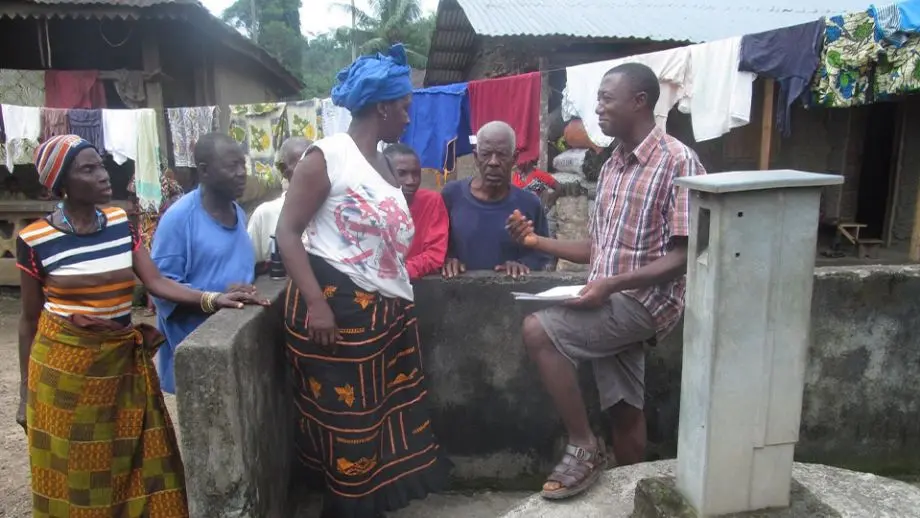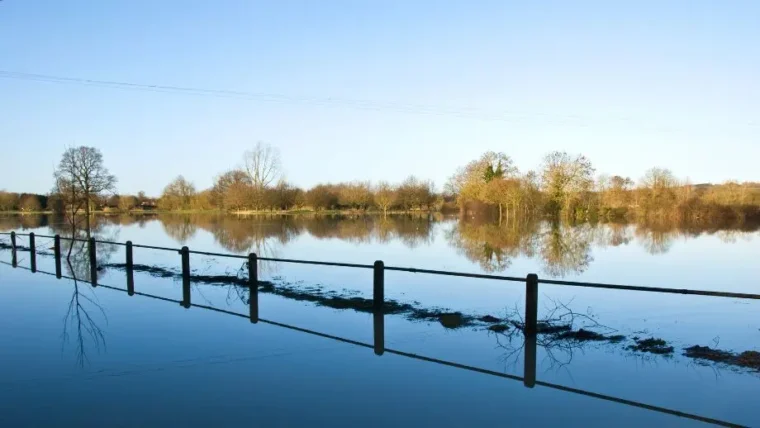MANTIS being deployed in Sierra Leone
28 September 2016

The challenge
Hand-operated pumps are common in villages and communities in sub-Saharan Africa and other parts of the developing world to lift water. In many rural areas, the problem of broken pumps can be extensive and between 20% and 50% of surveyed hand pumps are out of service. These communities rely on the pumps for their water supply and it represents a wasted investment for the organisations that supply them, many of which rely on charitable donations. As many of these pumps are in remote areas, it may take a long time for the message to get through to those responsible that the pump is not working properly.
The Partnership
EMS have partnered with Leeds Beckett University (LBU) to develop Mantis (Monitoring And ANalytics to Improve Service). Working together since 2014, EMS and LBU have a wealth of academic, technical and market knowledge to develop a solution to this challenge.
The Solution
As a solution for this problem, EMS and LBU envisaged a low-cost, always on, easily deployable and tamper-proof design that will not need to be repowered for years. The devices record how and when pumps are used and transmit the data to pump operators so they can a) mobilise maintenance resource, b) identify priority areas for future investments and c) better understand requirements. The idea is to produce and deploy prototype monitoring units that communicate with an accessible on-line platform, providing simple information regarding the pumps operational status.
What’s happening next?
A fully functional prototype has been developed by EMS in conjunction with LBU and is currently being piloted in Sierra Leone. Our man on the ground, Joseph Kobba is locating pumps for us where we can deploy MANTIS. He has great contacts in the study area and is able to explain the projects to local Chiefs who can ensure the work progresses unhindered. In the image above, you can see Joseph talking to Md. Christiana Jundu, Chief of Foya section.
We receive regular updates from Joseph about what he is doing and the support he is receiving from the local communities. This is a very exciting and needed project so stay tuned for updates from Joseph as he continues his work.
“The problems of broken water pumps in Sub-Saharan Africa are well documented, whilst the contributory factors are complex and multi-layered. It is hoped that the use of remote monitoring tools such as MANTIS, in place of physical site visits, may help address some of these problems and reduce the heavy time and resource demands on local stakeholders that are often associated with traditional monitoring strategies. As such, the MANTIS project could play an important role in improving WASH (Water, Sanitation and Hygiene) monitoring and might, in turn, help deliver universal access to safe and affordable drinking water by 2030, which represents one of the key targets of UN Sustainable Development Goal 6.”
Dr Andy Swan, Senior Lecturer, School of Build Environment & Engineering, Leeds Beckett University









